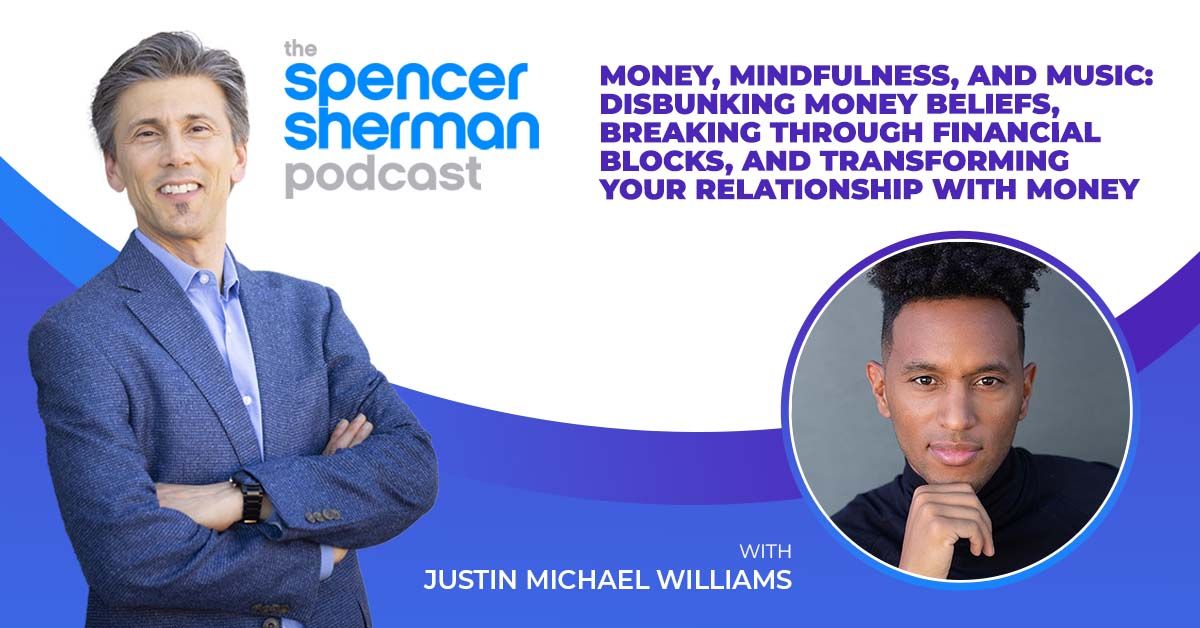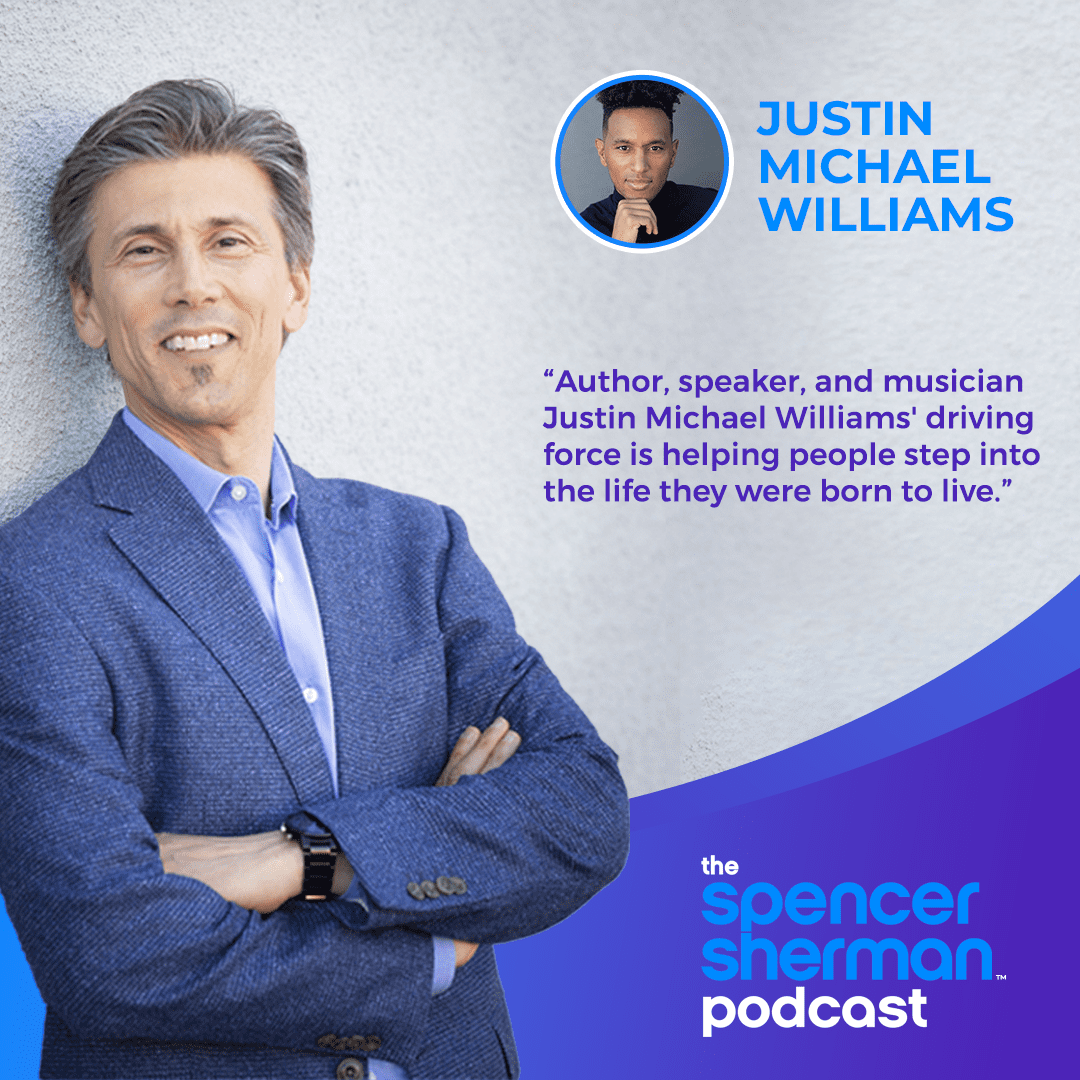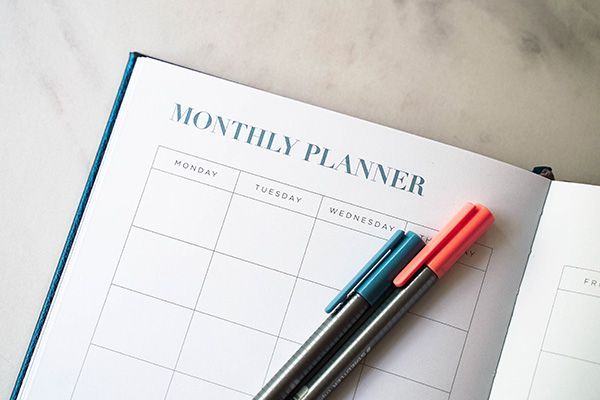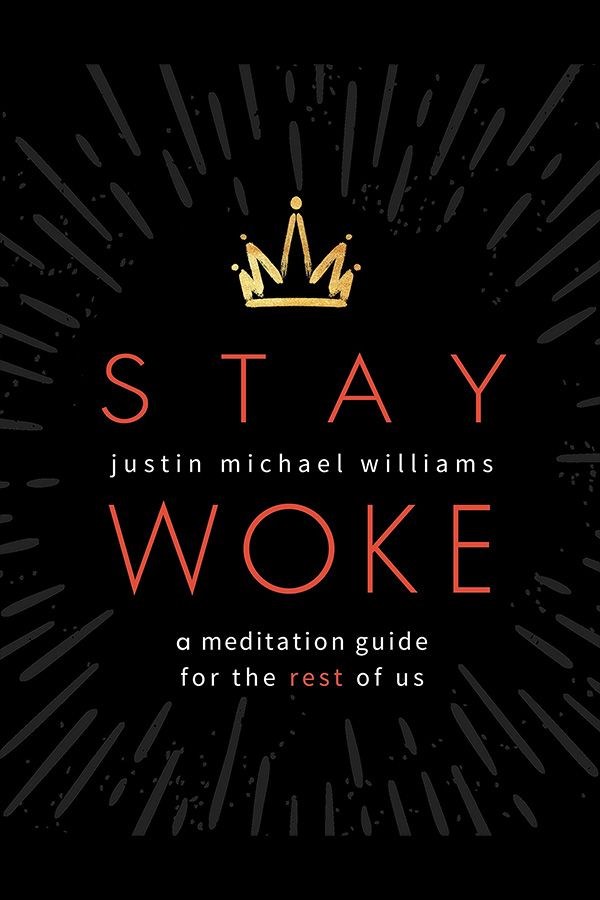True financial success comes not from external circumstances but from transforming your relationship with money from within. Join Spencer Sherman and
Justin Michael Williams in this enlightening episode as they discuss money beliefs, strategies, and relationships. Justin shares his journey from growing up in a challenging environment to becoming a Grammy-nominated musician, meditation teacher, and financial success coach. Spencer also adds insights on how his beliefs around the concept of money were shaped. Together, they explore the power of transforming your relationship with money and provide practical strategies for developing a healthy mindset towards wealth. They talk about recognizing and overcoming limiting beliefs about money, using meditation and mindfulness to cope with financial stress and anxiety, and the advantages of motivated action towards financial objectives. Tune in now and train your brain for a healthier relationship with money!
---
Listen to the podcast here
Money, Mindfulness, And Music: Disbunking Money Beliefs, Breaking Through Financial Blocks, And Transforming Your Relationship With Money With Justin Michael Williams
I am thrilled. I'm on my feet, a little bit on my tiptoes. I’m excited to be welcoming
Justin Michael Williams to the stage. Michael, welcome.
I'm grateful and thankful to be here for an important conversation. This is exciting to me.
Justin grew up with gunshot holes outside of his bedroom window. He has gone from that to sharing the stage with celebrities like Deepak Chopra and Marianne Williamson. He has been teaching around the world. He is also a Grammy-nominated musician and a meditation teacher. He is all about changing our life, and our relationship with money comes from within. I am delighted to have you here, Justin. How are you feeling? What is rising for you?
I'm feeling good. I'm excited about this conversation. I ate some great food. That is all I usually need in my life to pep up my step. I feel excited to be here to explore deeply this conversation about the transformation that happens within, especially about money, which people often think of as creating things that are outside of ourselves. It is a powerful conversation to have.
It is as taboo as sex, religion, and politics. It is a topic you can't talk about. Sometimes it might even be more taboo than those other three topics. If you are ready to dive into this landmine of a topic, let's do it, Justin. Starting out, would you share a little bit about the money beliefs you inherited? That is going to be important here for people to read in terms of the arc of your story, which is going to be so illuminating for all of us. It’s to read a little bit about those money beliefs that you took on when you were 5, 6, 7, or 8 years of age. What are some of the things that came to you at that young age?
This is such an important place to start because we all have our money stories based upon how money was treated, shown, or respected or not in our families growing up. It was interesting because I always say, “I grew up poor, but I didn't know it. I had no idea.” That sounds wild, but I did not know that we grew up poor until I was in college.
We all have our money stories based on how money was treated, shown, respected, or not respected in our families growing up.
People often look at me with shocked and confused faces. The reason I say that is I grew up in a community that is a lower-income community in general. It is a town about twenty minutes east of Oakland called Pittsburgh, California. In our community, we were the people who were not that poor. There were many people who had less than us.
What is interesting about this is when I got to college, I remember sitting at orientation with some of my friends. I think I'm middle class. If you would have asked me when I was seventeen, I would have said, “I was middle class.” I'm listening to my friends talk that I was meeting at college. They are talking about the vacation homes that they went to at the lake and the boat that their dad had. They were fishing on the sailboat with their parents, this and that. I was like, “This is what the middle class is.” I didn't even know. I had never even witnessed anybody having that money.
It was during that moment with my friends that I realized I was poor. The other thing that is important to mention about this for everybody’s reading is the context of how I didn't know. Now, in hindsight, I think about the story, and it is obvious to me. I grew up, my parents divorced, and I lived with my mom. She made about $35,000 a year as a single mom with three kids living in California. You can put that math together.
Somehow, I had everything I ever wanted. I never went hungry, not even close to anything like that. I got a new car when I was sixteen. I cared about Michael Jordan's shoes, which I don't care about as much anymore, but I had new shoes and clothes. We went school shopping at the mall for a new wardrobe every fall. I went on wherever I wanted to go. I never got told no for anything. We had all the video game consoles. We had everything that I wanted.
It wasn't until later in life that I discovered that my mom had put herself in massive debt and demolished her credit. She never let us know about any of that. She would overdraw her bank account. We never knew that. She would be choosing to pay this bill and let the other one be past due so that we could get shoes. We never knew that.
I want to comment on a couple of things you share because they are important for all of us to learn this label that we tend to give ourselves around money. This is my interpretation of one of your stories to some degree, is that in some ways, and I'm hearing that from you, it might have been a blessing in disguise that you didn't know you were poor. You didn't have that label and limiting belief. A lot of us walk around with this idea, “I am different. I am poor. I am less educated,” or whatever ways we make ourselves less than other people.
I'm in a men's group. I can say that to myself because I don't weigh as much as the other White man in my men's group. They are over six feet. They are 200 pounds. I can separate myself. This way, that money can be a separator and a definer. You didn't have that so much. That is a beautiful thing in some ways that somehow your mother has the secrets of all of her past bills that she didn't pay, but she also gave you this less narrow view of yourself.
I see it as a gift, but every gift can have a shadow. That is what I have had to work with in my adult life. I'm 35 now in 2023. I left my hometown. I went to college at UCLA and built this life. I built my own company and business. I have employees now. It is interesting because the gift that my mom gave me was this idea like, “There will always be enough. You can experience your life. Go and have the experiences and the things that you want because those are the things that you can't undo. Money shouldn't stop you from doing that.” That is great. You will always find there is always more money to be found. Those are the lessons that I took.
The other lesson I took that is a little more challenging is it is always going to work out, which sounds like a good thing until you spend too much, and you got to figure out, “How am I going to work this out?” It has led my life to some overspending and some also not paying attention, like not watching my bank account.
This is a good thing for all of us to read. It was like, “I will buy that car, outfit, or house. Somehow it will all work out.” There are two sides to that. You are well saying that there is this optimism and confidence in that. There is also the shadow of not being realistic or not confronting reality. What can I do? Not saying, “There are guardrails in life, and I'm not paying attention to them at all?”
That is important because a lot of us have this sense. I always did that once I get to a certain level of income or wealth, I won't have any worries about money anymore. I will be able to spend money on anything. In my profession, I have met a lot of extremely wealthy people, people with tens of millions of dollars. I find even amongst those people who earn that money, there is not that sense necessarily of this ability to buy anything. It sounds like you too. Even as you have become more successful, that idea that it will work out has not necessarily always been true.
I have had some SOS moments where I have had to make a couple of phone calls and ask for favors because even in that case, it has worked out, but sometimes with some repercussions, which is not always the best thing. I can attest to the fact that this story has benefited me, and it has also come with some big challenges that led to a lack of consciousness around money because, as a kid, I never had to think about it. There was never any conversation about it at all in the house.
That is normal. I want to normalize that because we think we are different and unique. We find out that in many families, money is an unspoken topic. You probably felt the tension in your family or maybe the confusion and mismatch between how your family was spending and how much they had. You might have felt that on some visceral emotional level as a child without understanding it. We get much, and often it is a confused message because there is nobody explaining stuff to us when we're a child.
I want to hammer home this point because we chatted a little bit. You said, “In order to gain any success in life and deep happiness, it is going to come from within. It is not going to come from the external and getting more money.” Your story reveals that. If you are sitting here and reading this, you are thinking, “My problems, a lot of them, will get solved with more money,” that may not be true.
There is a lot of evidence for the opposite. The good news is that you can address your issues. That is where the opportunity is. It is addressing these issues internally, not waiting for some financial windfall to address them later because that financial windfall is unlikely to provide the transformation you might be fantasizing about.
Can I ask you a question? I'm thinking for myself. I know that still now, I have a lack of awareness and this, “It is always going to work out.” It causes me not to look sometimes. An example I will give you that happened is I had a couple of huge speaking gigs. This is going to be a bougie example, but it is a real example for my life.
I want real ones because everyone will relate to the real ones.
I had my 35th birthday in February 2023. Last October 2022, I invited about 20 of my friends to come to Bali for my 35th birthday. They were going to pay for their flights, but I was taking care of everything else. I had made that as an educated decision because I had these speaking gigs lined up. I knew what this cashflow was going to be. Right at the beginning of 2023, two of the speaking gigs were massively canceled. I still had enough time with my contracts to pull some of the agenda I had planned in Bali back to not spend as much.
Instead, I said, “I don't want to pull back. This is my birthday. It is all going to work out.” It all worked out. I had to put some stuff on a credit card. To make this a little relatable, it is the stuff that we know we want, we say we want, we plan for, and something changes or goes unconscious. I have many micro examples of this in my life. I can tell myself, “Justin, every Monday, you are going to check your accounts.” I do it for several weeks, and I stop. What inner work do I need to do to shift my mindset to become someone who looks more carefully at these things?
Are you open to doing a little bit of mindfulness exercise?
Yes.
I'm going to invite you, Justin, to disclose your eyes for a moment that phrase of, “It is all going to work out. Spend what you want.” If you can recall a specific moment from your childhood, maybe from when you were 5, 6, 7, or 8 years of age when you got that message, “It is all going to work out. Don't worry about money.” That cavalier attitude towards money. If you can share with us where you are, who you are with, and how you are receiving that belief about money, I love to hear it.
I remember being a little kid in the passenger seat of my mom's car and her driving up to the ATM at Bank of America and realizing that she had overdrawn her account. At that moment, I remember her being whimsical about it. She was nonchalant about it. She was like, “I overdrew my account. We are going to go. Everything is fine.” That is the first time I remember this feeling of like, “It is not that big of a deal.”
Was there any sense of confusion or any other feelings that the young Justin felt at that moment?
As I'm feeling into the moment now, I do remember feeling concerned. I was concerned that there was something wrong and almost wondered if she was lying that there was nothing wrong, but having no context or a way to know anything else but going along with her whimsicalness.
This is great because it sounds like you have this radar inside and this intuition. Your body has this wisdom. It somehow knew that there was something concerning and something worrying here. You were getting some signal that things were not quite right. We will connect this may be to the present moment in a moment, but I want to play on that a little bit and stay with that story there. I want you to offer your eyes close for a moment. How old were you in this story?
The body has this wisdom of somehow knowing if there is something concerning. It sends signals if things are not quite right.
Nine.
Picture him, what you remember him looking like, and see him. I want you to imagine your 35-year-old self right now offering compassion to this young 6-year-old Justin in whatever way. You're offering compassion for this boy who didn't know anything about money. He wasn't educated about it. Things were happening, and his body was reacting to things that were happening. What would you like to say to young Justin?
You can trust your intuition, and it is going to be okay. You don't have to worry about this. This is not yours.
You have been offering this compassion to younger Justin. You are saying to him, “You are noticing that. It is going to be okay.” What was the other thing you said to him?
“This is not yours.”
I want to feel that for another moment, this compassion for young Justin. It is not his. Trust your intuition. This is not yours. Feel this kindness and love for him that he took on these messages given. He was this blank canvas around money. I want to shift for a moment here to your mother. I want you to offer compassion to your mother. I want you to try that on offering compassion, for she had her own conditioning with money.
Offer this deep compassion for her and recognize that underneath all of her money actions, she wanted wholesomeness, security, success, and wellness for you. Her intentions were noble, but she was acting out of her own history and beliefs with money to this feeling of compassion and share what is arising for you as you share this compassion and understanding of your mother's predicament.
What comes if I offer her some compassionate words is mainly, “You will be loved by your kids even if you don't buy them everything. I know that you are doing the best you can and you are trying hard.”
Keep feeling your love for her, your understanding of how this wasn't at all personal. This had everything to do with her own conditioning and the beliefs that she took on. I'm going to ask you another question, but if anything else is arising for you, please interrupt me. If there is anything you want to say about what it is like to offer young Justin and your mother compassion, speak it out. I'm going to throw one more question at you.
When I counseled people about money, one of the things I discovered is that two siblings, similar in age, will have different money beliefs and takeaways from the same money stories. For example, 2 sisters close in age, 1 sister said, “Terrence, you survived the holocaust.” One sister said, “You should spend your money as soon as you get it because you never know what will happen.” The other sister's belief about money, you should save your money because you never know what will happen. It is a completely different interpretation of the same situation.
One of the things that I have discovered about money is that it is made up. We think we get these concrete ideas from our family around money, but we add a lot of our own spin to things. On the one hand, that could be a little bit like, “I have my own spin. I created this money belief.” It is freeing to know if you create it, you can undo it. I want to give you permission to tell us what might be. Let's imagine for a moment that you could ask for any money belief. What's the money belief you wish your mom had shared with you?
I'm responsible with my money.
It is cool to be responsible with money. How does that feel as you said, “I'm responsible with money?” What is the experience in the body?
It feels grounded.
It doesn't feel heavy to me the way you are saying it. It feels grounding.
It feels grounding, and it also feels like it makes things possible. Being responsible makes it more possible than being more frivolous and not paying attention.
Do you want to say more about why that might be?
As you are responsible, there may be some longer-term and bigger-picture things that you are able to do that you may not be able to do in the short term. It also doesn't have to take away. Being responsible doesn't mean that you can't have fun and enjoy. It means it is also adding another benefit, which is some of the longer-term pictures.
When we have a sense of responsibility, which includes being able to engage with the numbers and see things clearly, which is certainly an aspect of meditation for both of us and for all of you reading, our meditation teachers, we get to also as we see things prioritize what is important. The person who is less able to see things clearly, we might spend a lot more on Monday than we want to and not have as much for Wednesday, Thursday, or Friday, for example. That ability to be responsible and plan out the day, the week, the month, the year, and the decade can be empowering to bring forth your true desires, not necessarily your desires at the moment.
I want you to imagine for a moment you are taking on this belief that you are reframing things and taking on this idea, “I am responsible with money.” That is cool to be responsible. Any other language or words that feel right to you. Let your whole body sink into and envelop that belief for a moment. I want you to imagine from that place how that might impact. Let's say there is a decision to make about money, whether to buy a new car, a new shirt, or whatever else is coming up for you in your life that you might be spending money on. How might it impact that spending decision from this new place of, “I am responsible with money?”
It might make me make a slightly more conservative decision about big things that I'm thinking about. The timing is interesting because I'm in the process of looking at buying a condo in a way. I have a place that I'm excited about, but that is a little bit beyond what I was expecting financially. The option to jump into that or not, or to go with something a little bit more conservative. It makes me think, “If I go the more conservative route and I go on that idea of being responsible makes more things possible, it might lead me to take a more conservative route or take a real deep second look at the first option that I'm considering.”
Who knows what the final decision will be? If it is based on the numbers and the evidence about what is true for you and what is going to bring you most alive, I don't have a quick answer. You should either necessarily about whether you are going to take the less expensive or more expensive condo. It is sitting with this if you have a little time where you don't have to make an impulsive decision. That is always better.
If you can sit with this and be with it, what are the pluses of spending a little more? How will that impact my finances? Instead of saying, “It will all work out. It won't work out.” Look at the numbers. What is the difference? How does that feel because users have done all this work around looking at this new belief of, “It is good to be responsible, and I am responsible with money?”
It feels grounded and clear. I feel a sense of possibility when I think about it that way.
This compassion practice and I will share it with you, Justin, and everyone, is a practice that I do every day. It took about a month until I saw some benefits. I trusted this practice because it is based on 2,600-year-old Buddhist practices. I was getting nowhere with this practice. I was determined because I had a belief about money that was infecting my life in a bad way. My belief was money was more important than everything, which led me to do some unhealthy things in my life. I risked my life in all kinds of crazy ways.
I kept doing this compassion practice. What came out of it for me was loosening. We are not going to get rid of this belief that you took on that it will all work out. I don't think we need to because there is value and gold in that belief. We are going to loosen it a bit. It is something that you don't need to take a lot of time out of your days. You can do five minutes a day. You can do it when you are waiting in line somewhere, offering young Justin compassion. We are not getting rid of his beliefs. We are offering compassion for his beliefs. We are almost going the other way. It is okay if you think it is all going to work out. That makes sense that you would believe that, given what you were surrounded by.
I want to invite you and everyone to keep at this compassion practice because I have discovered, and many people have, that this is where you can start to feel into and start moving from, as I have experienced, start acting from making money decisions from this new Justin that is aware that money will work out and I am responsible with money. That combination is a powerful combination.
I know you wrote this song around I Am Enough. It feels connected to this idea of being responsible. It will all work out, and this internal enoughness that you are putting out into the world. When we make a decision from that place, I'm curious, as you are feeling now, what would it be like for you to make this condo decision from this place of responsibility, and it will all work out enoughness?
What it looks like is handling the decision differently to start sitting down and looking at the numbers. Here is what it looks like with decision A and what that is month to month. Here is decision B and what that is. Thinking through what that creates for me versus deciding based on which one I want allows me to make a much more responsible, educated, and clear choice, which I like. Either way, I'm going to be fine.
I got goosebumps when you said that about looking at the numbers because I thought about your mom. She wasn't often looking at the numbers and didn't have that ability. For most of us, that is a tricky place to go to look at the numbers because it is scary. It is easier to look away from the numbers. I got goosebumps and chills. It was exciting for me to hear that. That is how weird I am, Justin.
Looking at the numbers is like being present and in touch with reality. You don't necessarily need to do all the work yourself. You can hire an accountant, someone, or a friend who got some common sense to be your ally and do it together with someone and say, “I need to know what the numbers are here because even if I end up choosing the more expensive condo, I want to go in with this truth of what is happening. I want to be prepared for it.”
“I know I'm still going to have the great birthday celebration, but I may have to tweak a few of the 40th and 50th birthday celebrations if I do the more expensive one, depending on what happens with my earnings.” You come up with a plan for yourself where you can win. There are many paths to winning. You don't feel that stress of like, “I only win if this happens.”
This was helpful for me in a big way and at the moment. It is a decision I wasn't expecting to come up in this conversation, but that was real for me right now. The call that I had before this was about this.
This work has helped me transform a money belief. It also transformed my relationship with my father. I would be curious to hear what comes up with you and your mother over time with your relationship with her as you do this compassion for her.
That was a beautiful thing to help me see and understand why she was doing things the way she was doing them. I found that to be powerful. I’m less upset about any stories or teachings I did, didn't get, what could have or should have happened. It made it clear why things were the way they were. As soon as I took that stance, it was easy to see why it was the way it was. I felt a lot of love.
I want you to get out. How do people get in touch with you? How do people find out about your great work, workshops, and other speaking engagements? Where should people go?
One of the things that excited me about talking with you here, and I was grateful we got to do it in this way, in such a vulnerable and deep way, is the intersection of our work is about how we transform within to see the change we want to see outside in our lives. Your work is doing this deeply around money. My work is doing this and helping us use the tools of mindfulness to transform, achieve, and accomplish what it is that we want in our lives.
Mindfulness is not to relax or reduce your anxiety, but some of the anxiety we feel in our life comes from the fact that inside, we know we should be doing and being one way. Outside, we are being and doing something else. That tension and dissonance are what create a lot of anxiety that people have. I have lived this myself. When people dive into these practices, it can be powerful.
My work is around the intersection of mindfulness and transformation and how we can take these inner practices and put them out into our lives and in the world. What is cool is we all have to continue doing them at every stage. It is not like we are ever done like, “I'm transformed now. I got it all figured out.” It is to keep playing a bigger, deeper, and more meaningful game.
Life has a lot of twists and turns to challenge us and bring us to the next stage.
Check out Justin Michael Williams. I want to thank everybody for reading. Thank you, Emily and Krista, who said, “Saving money is caring for your future self.” I love that because I feel like what you are doing, Justin, by becoming more responsible with money or more engaged with the numbers around money, is you are caring for both your present self and future self. Thank you, Kelly. She says, “Hello to you, Justin. Kelly Blazer.”
I know Kelly. That’s great. Hi, Kelly.
Thank you so much, Justin. I appreciate you and hope to see you in LA.
See you later.










